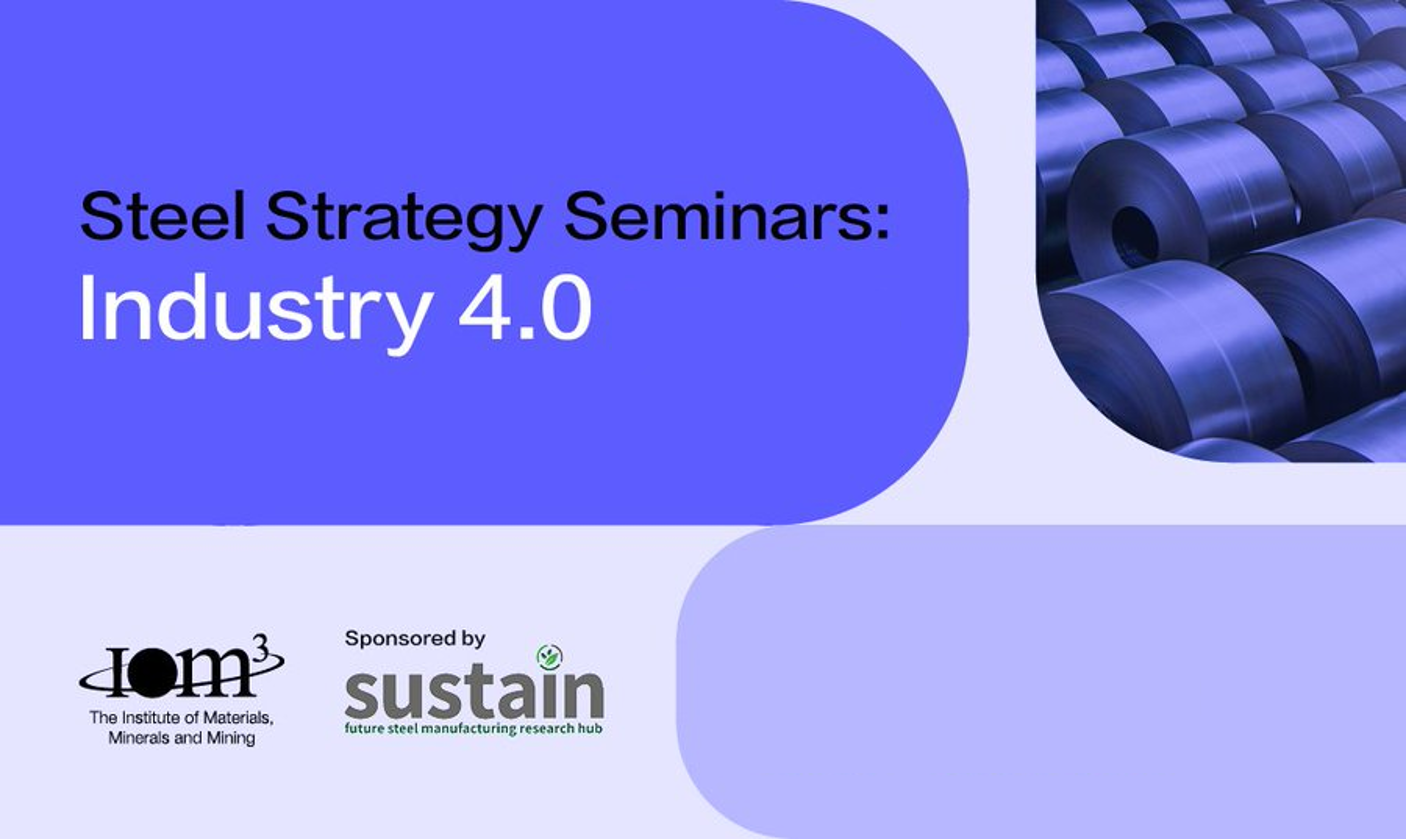Industry 4.0 and the Steel Industry
Industry 4.0 and the Steel Industry
On 27th October and 24th November, the Institute of Materials, Minerals and Mining (IOM3) hosted two steel strategy seminars sponsored by the SUSTAIN Hub.
The focus of these seminars was Industry 4.0, and brought together industrial and academic specialists to present on and discuss the progress and challenges the UK Steel Industry faces in this area.
The main areas of discussion included:
· Is the UK Steel Industry implementing Industry 4.0 effectively?
· What barriers to implementation is the industry facing?
· How do we overcome reluctance to embrace Industry 4.0?
· Where does the UK sit in terms of implementation compared to the rest of the World?
The adoption of Industry 4.0 has the potential to create smarter, more efficient steel plants, which in turn will help reduce emissions, improve product quality and decrease plant downtime. Due to the harsh environments often found in steel plants, sensors have been used to collect data for some time. However, only a fraction of the data collected is analysed and used, so there is potential for significant advancements to be made through big data analytics and combining statistics from multiple areas to generate a holistic view of the steel making process.
Artificial Intelligence (AI) is likely to play a significant role in smart manufacturing; systems can begin by learning from operators, before moving on to providing assistance, visualisation of potential scenarios (for example, time for a process to complete versus energy consumption) and offering automated diagnostics and prognostics for early warnings of developing issues on a production line. The introduction of such technologies requires operators to work with AI systems to ensure the learning process is mutual. In some cases, the introduction of AI has been shown to offer more than a step change in improvement and has resulted in a complete revolution in the understanding of systems and processes.
If the introduction of Industry 4.0 can have such significant effects on productivity, why has it not been adopted everywhere? There are many barriers industry is facing, including:
· Lack of drivers to make a change
· Lack of knowledge on available technologies
· Workforce skills gap
· Resource constraints
· Security concerns
To make implementation successful, the steel industry must plan for a cycle of transition, with clearly laid out goals and objectives for processing, utilising and storing data. Any changes must be fully communicated with staff, and additional training offered where necessary to ensure successful integration and transition to new systems. There are also increasing concerns surrounding the use of remote access and cloud services, which must be addressed prior to implementation to ensure the security of networks and information systems, through the understanding of technology and processes, and workforce education.
Collaboration is needed between industry, academia and businesses to ensure commercial needs are fully understood so tailored solutions suited to each process can be developed. Some sectors are further established in their integration of Industry 4.0, and the steel industry must collaborate and learn from such systems already in place, especially within other foundation industries.
Overall it is clear there must be significant investment in digital transformation across the whole British manufacturing sector, which must become less reactive and more future focused in order to keep pace with the rest of the World. There are risks with implementation of such technologies, but these must be balanced with the risk of not taking action and squandering valuable data which could be used to improve efficiency and reduce the environmental impact of the UK’s manufacturing activities.
The full recordings are both seminars are available to watch on demand now:
Steel Strategy Seminar Part One: Industry 4.0
Steel Strategy Seminar Part Two: Industry 4.0
With thanks to the Steel Strategy Seminar contributors:
Institute of Materials, Minerals and Mining (IOM3)
Andrew Dunsmore
Dr Zakiah Suhaimi - WMG, The University of Warwick
Dr Kurt Herzog - Primetals Technology
Dr Andrew Zoryk - Deloitte Consultants
Dr Tom Kirk - Foresight Data Machines
Dr Steven Wood - Digital Catapault
Dr Laura Baker - Tata Steel
Dr Qiushi Cao - Computational Foundry, Swansea University
Johnathan Bonner - Senseye
Roeman Kirmse - Tata Steel
Paul Hingley - Siemens

